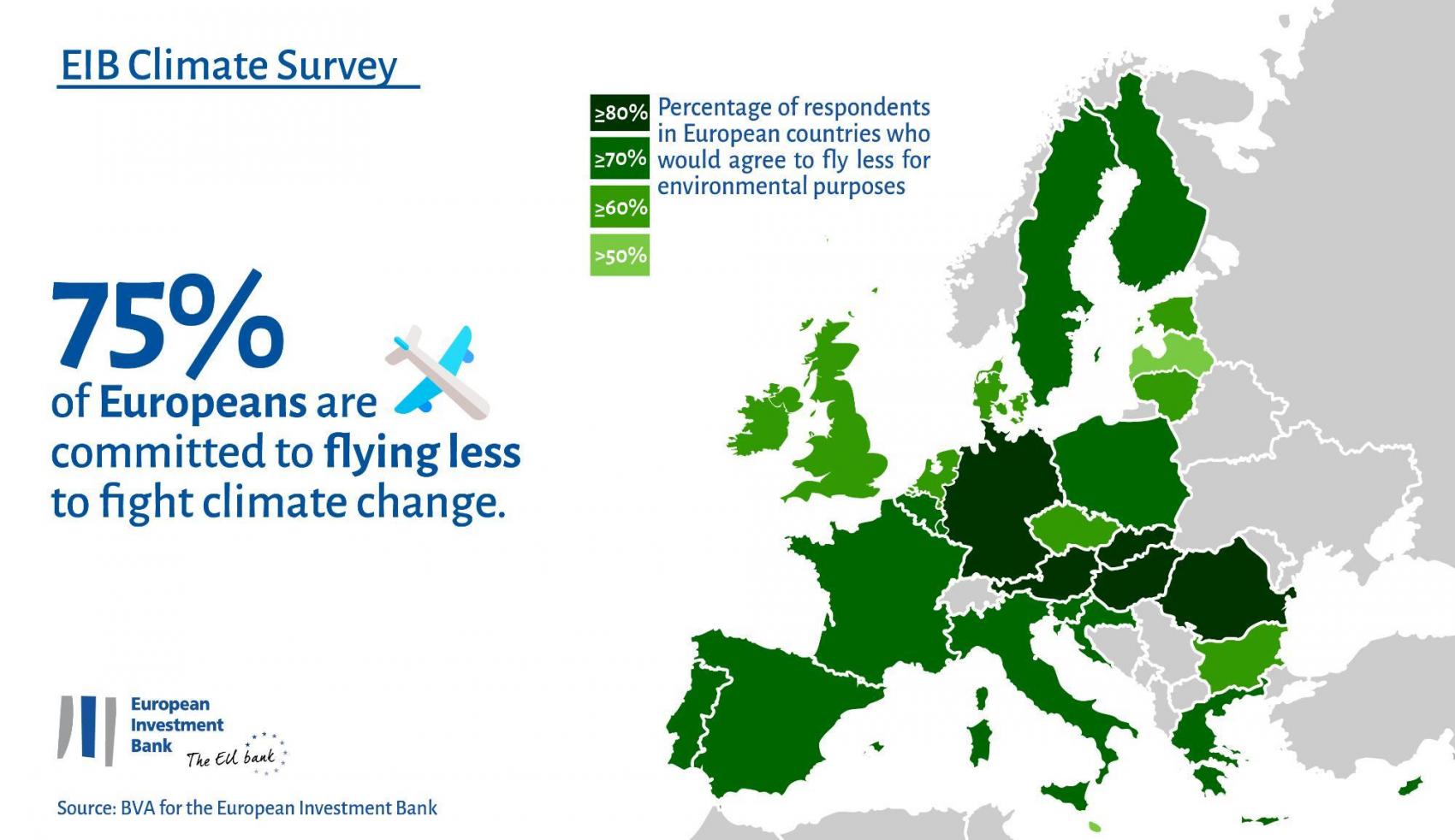
Most Europeans think climate change is real, it is caused by humans and humans can reverse it
The European Investment Bank (EIB) recently released the results of their climate survey, a comprehensive initiative assessing citizens’ perception of climate change and their expectations on climate action. Cycling and walking are listed as viable options to contribute to reducing our greenhouse gas emissions.
It is extremely interesting and encouraging to see that 69% of the 28,088 Europeans interviewed think that their own individual actions can have an impact in tackling the environmental issues we are all facing. In the mobility field, walk or cycle in the daily trips looks one of the greatest ways to get away from carbon emissions. According to the survey, 76 % of Europeans walk or cycle, or intend to do so, to confront the climate crisis. In China 93% also reported the same, compared to 57% in the USA. Sustainable mobility remains one of the pending subjects on the other side of the Atlantic.
But coming back to Europe it is interesting to analyze which countries walk or cycle more in their daily trips. The Netherlands leads this ranking, with 51% of daily walkers and cyclists, followed by Denmark, Bulgaria and Spain with about 45%. In the case of the Dutch it is evident they have one of the best cycling infrastructures in the world, which encourages them to use the bicycle daily. Actually, 10 % of the Dutch surveyed say that this decision has nothing to do with climate change, it is just their usual means of transportation.

The study shows a clear correlation between the countries with fewer daily cyclists and walkers and the lack of facilities there to do it. In other words, Cypriots (27%), Maltese (23%), Luxembourgers (20%) and Slovenes (17%) are the ones who affirm that it is not possible to do those daily journeys (without motor vehicles) where they live. Cyprus, Malta, Slovenia and Luxembourg are also the countries with most negative results in the survey section of walking or cycling. Many factors could explain this but infrastructure is one of the most significant elements to promote cycling. In the Netherlands, where the total length of the the cycle network is over 35,000 km long, only a 2% ensures not to choose to walk or cycle due to the lack of possibilities in their hometown.
When it comes to travel, Europeans are increasingly looking for more climate-friendly options. For example, 63% say they fly less on holiday and 78 % say they don't travel too far from their country on holiday in order to reduce CO2 emissions. A large majority of Europeans, 68 %, prefer also trains to planes for trips that take five hours or less. In short, as the European Green Deal claims to be the green thread connecting all EU policies, European citizens strives in the same direction, trying to improve their personal habits to tackle climate change.

Europeans are not only willing to change their most polluting habits, but also to push their governments for more ambition against climate change. About 72% reported that they have called on their governments to do more to tackle climate change. The individual actions are not enough without changes at collective level. This is where the institutions have to push further, as the Netherlands has done, to promote the bicycle as a truly effective tool for tackling the climate crisis.
Beyond Europe
Regions:
Contact the author
Recent news!
Upcoming events
Contact Us
Avenue des Arts, 7-8
Postal address: Rue de la Charité, 22
1210 Brussels, Belgium









